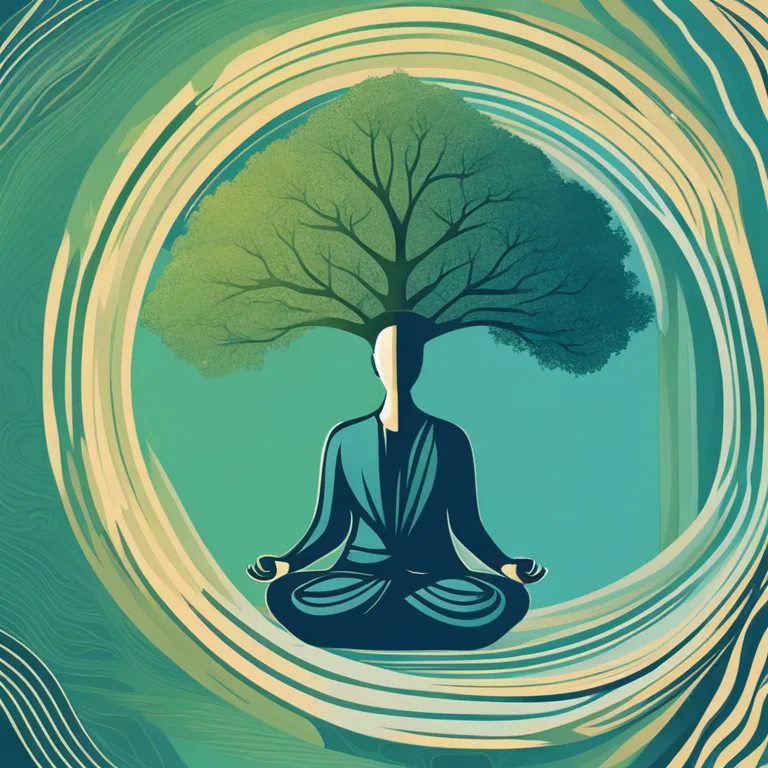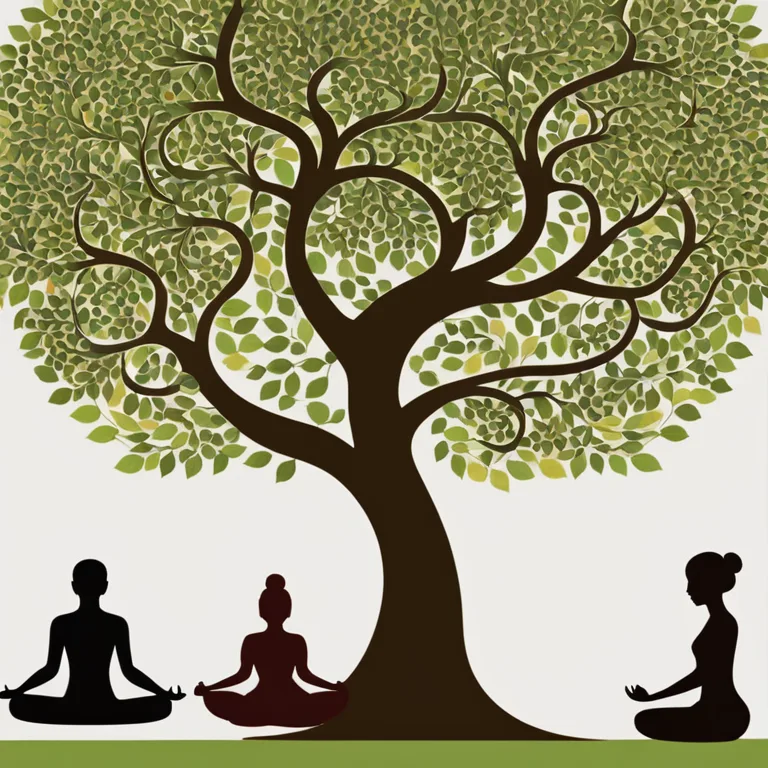
The Connection of Meditation & Yoga Philosophy
Discover how the diverse techniques of meditation are deeply intertwined with the ancient practice of yoga philosophy.
article by Hina Kurosawa
The Foundation of Meditation
Meditation is commonly known to be a tranquil and transformative practice, intertwining the state of the human mind with the intangible pulse of the universe. At the heart of every meditation technique lies the profound wisdom of yoga philosophy, which has been nurturing spiritual seekers for thousands of years. The sage Patanjali, often considered the father of classical yoga, laid down the foundational text, "Yoga Sutras," which not only details the eight limbs of yoga but effectively sets the ground for various meditation approaches we see today. As the cornerstone of meditative practices, yoga philosophy upholds the concepts of Dharana (concentration), Dhyana (meditation), and Samadhi (absorption) as the steps leading towards ultimate liberation.

Sutras Guiding Modern Meditation
Modern meditation techniques frequently take cues from the wisdom distilled in the Yoga Sutras of Patanjali. These sacred texts articulate the journey towards stilling the mind and achieving a state of pure awareness, goals that are central to contemporary meditation practices. The Sutras expound on various means to master these states through ethical disciplines, physical postures (asanas), breath control (pranayama), and sensory withdrawal (pratyahara) – all serving as progressions to meditation. Thus, while we may encounter eclectic meditation methods today, they are fundamentally inspired by these age-old practices codified in yoga philosophy.

Emergence of Meditation School Variations
Over the centuries, as yoga traveled beyond India’s geography, numerous cultural interpretations gave rise to diverse meditation schools. Mindfulness, Zen, and Transcendental Meditation, for instance, may differ in technique and presentation, yet they trace their roots back to the elements of yoga philosophy. They all emphasize the quieting of the mind, a key principle highlighted in Patanjali's Sutras. The adaption of the eightfold path into these schools emphasizes the universal applicability of yoga as a foundation for meditation, proving how these contemporary practices are not disjointed novelties but are rather reiterations of ancient yogic wisdom.

Yoga Philosophy Influencing Therapeutic Modalities
In today's world, even medical and psychotherapeutic fields recognize meditation as beneficial, incorporating it into holistic treatment modalities. The mindfulness-based stress reduction (MBSR) programs and mindfulness-based cognitive therapy (MBCT) are exemplary cases where yoga philosophy spills into clinical settings. Such treatment programs acknowledge the mind-body connection elucidated by yoga's ancient sages, promoting meditation as an essential tool for wellness. The therapeutic effects of these modalities, such as reduced anxiety and improved cognitive function, serve as testaments to the enduring relevance of yoga philosophy in cultivating a peaceful and focused mind.

Adapting Ancient Practices in the Tech Age
With the dawn of the digital era, modern society has interwoven yoga philosophy with technology, pioneering unique forms of meditation experiences. Apps and virtual reality programs now offer guided sessions based on yogic practices to foster relaxation and mindfulness. These digital platforms enable users to engage with age-old meditation principles from anywhere in the world, bridging ancient philosophy with contemporary lifestyle. While the medium through which these teachings are delivered has evolved, the core essence remains steadfastly derived from the yogic tradition.
Envisioning the Future of Meditation Techniques
As we progress further into the 21st century, the potential for new forms and applications of meditation is vast. With each evolution, however, the fundamental principles of yoga philosophy continue to serve as a beacon, guiding the creation and adaptation of meditation practices. We're beginning to see meditation and yoga philosophy integrated into educational systems, corporate wellness programs, and even government initiatives, indicating the timeless and universal appeal of these transformative disciplines. As we advance, yoga philosophy's insightful teachings will undoubtedly continue to shape our approach to mental balance, wellness, and inner peace.
Published: 1/8/2024
Modified: 1/8/2024
More predictions
Come back here soon to learn more about yourself and your future


Meditation Techniques: A Handbook
Discover the breadth of meditation methods to enhance your wellness journey.


Mindful Meditation Practices Explained
Discover techniques to enhance your mindfulness through meditation, fostering peace and clarity in your daily life.


Jain Meditation Techniques for Inner Peace
Discover the serenity and spiritual depth of Jain meditation practices in a comprehensive article tailored for modern seekers.